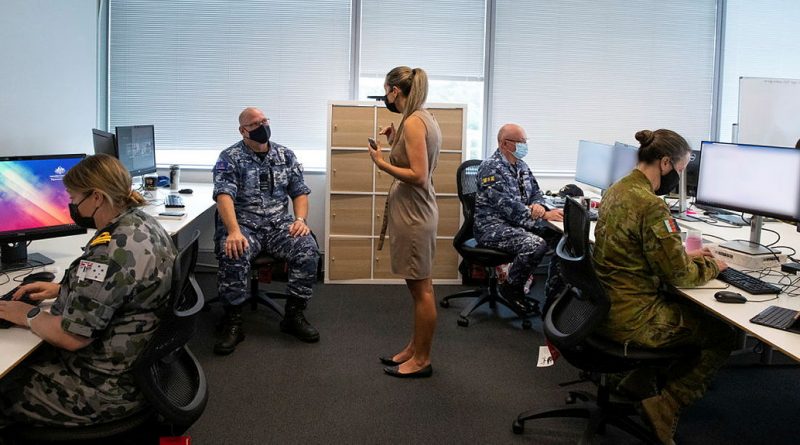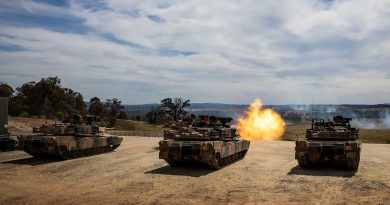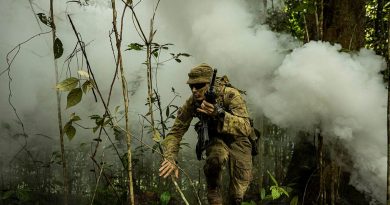ADF support to aged care set to increase

Twenty-four ADF medical teams assisted at aged-care facilities in the first weeks of ADF support to the aged-care sector, with the number expected to increase over the coming weeks.
CAPTION: Australian Defence Force personnel from the Aged Care Support Planning & Coordination Team working with Department of Health personnel in Canberra on 22. Story by Private Jacob Joseph. Photo by Kym Smith.
Since the Prime Minister’s February 7 announcement committing ADF personnel to supplement COVID-related staff shortages, more than 50 residential aged-care facilities have requested Defence assistance.
Commander of the Defence COVID-19 Task Force, Rear Admiral Robert Plath, has been leading the planning and coordination team of 18 ADF staff, working with the Department of Health at their offices in Canberra.
“While most of the ADF personnel that are assisting are not medically trained, they are being used for important general-duties tasks,” Rear Admiral Plath said.
Working in teams of two to 10, general-duties personnel are assisting with administrative and physical tasks, such as helping patients take rapid antigen tests, organising personal protective equipment, providing companionship or arranging Skype calls with family.
Ten independent medical teams (IMTs) and 14 augmentation teams have also deployed, with IMTs consisting of one nursing officer, four medics and five support personnel, and augmentation teams made up of three medics bolstering capability to support existing aged-care staff.
These teams are providing clinical support and assisting with medical and hygiene tasks, and patient record-keeping.

CAPTION: Department of Health liaison officer Dani Cody and ADF personnel from the Aged Care Support Planning and Coordination Team at the Department of Health offices in Canberra offices. Photo by Kym Smith.
For most personnel involved, Rear Admiral Plath said this was their first exposure to residential aged care.
“Despite the challenges, even non-medically trained personnel are having a significant impact,” Rear Admiral Plath said.
“Our personnel are spending time with residents, sitting and talking and going on walks.
“Those little human contacts make a big difference to residents and their quality of life.
“There’s a lot of value in feeling like you’ve been able to do something for your community.”
Department of Health liaison officer Danielle Cody said these stories helped aged-care facilities overcome concerns about requesting ADF assistance.
“We’ve seen residents spending time with ADF personnel on Valentine’s Day,” Ms Cody said.
“The residents were really grateful and thanked them with cards and cakes they made themselves.
“There’s a bit of a buzz in those facilities that have been lucky enough to receive ADF support.”
About 200 general-duties personnel could be made available to each state and territory, ready to be coordinated by the health department once an aged-care facility submitted a request.
.
.

.
.





